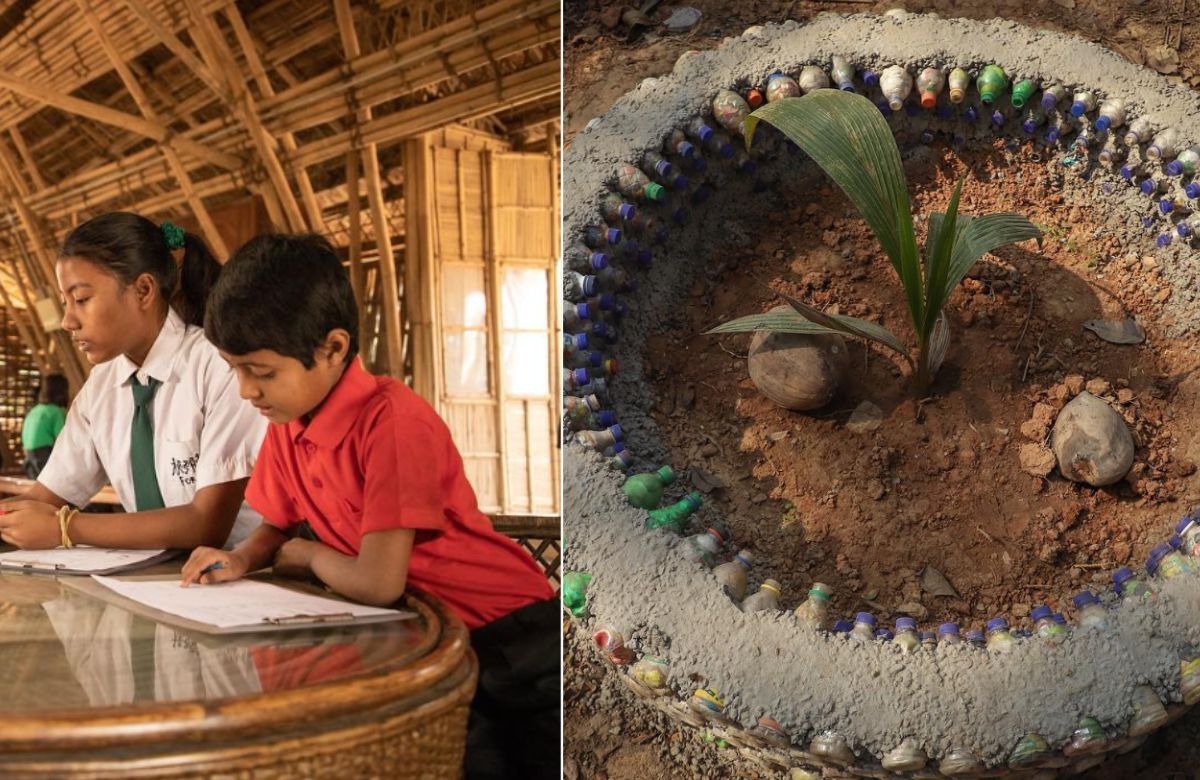In an era marked by environmental crises and educational disparities, an innovative NGO has started a school that has emerged as a beacon of hope, turning plastic waste into a currency for knowledge. Welcome to the inspiring world of the Plastic Bottles for Education school, where plastic bottles are transformed into a currency for a brighter future.
The Birth Of A Vision: Plastic Bottles As School Fees
View this post on Instagram
The inception of this groundbreaking initiative can be traced back to a small school in Assam. Like many other parts of the world, plastic pollution is a growing menace. Plastics littered the streets, clogged waterways, and posed a grave threat to the environment. At the same time, access to quality education was a luxury that only a few could afford. This stark contrast between environmental degradation and educational deprivation served as the catalyst for a remarkable vision.
Nestled amidst lush greenery and breathtaking landscapes, this school accepts a fee of 25 plastic bottles per week. The plastic collected is then used to make bricks, roads and toilets. This school is under the Akshar Foundation. Additionally, it helps the community to clean up their environment while providing free education to children.
This approach not only cleaned up the environment but also promoted community engagement and awareness about the importance of recycling. Moreover, the senior students can earn points by mentoring younger pupils, but they can also earn points by doing other jobs like gardening, serving lunch and more. The school even has a 0% drop rate.
Also Read: 500+ Volunteers Gathered To Pack 7000 School Supplies On World Humanitarian Day In Dubai
Education That Transforms Lives
View this post on Instagram
The curriculum incorporates a variety of subjects, like carpentry with maths, solar technology or electrical engineering with physics, sewing or embroidery with economics, teaching with psychology, recycling with ecology, gardening with biology, etc. Students learn a wide range of subjects by their late teens. This helps them concentrate on a rewarding professional path.
Additionally, this unique approach aimed to equip students with the knowledge and skills needed to address the pressing challenges facing their community.
As the world continues to grapple with environmental crises and educational disparities, this school’s journey offers hope and inspiration for a brighter, more sustainable future.
Cover image credits: Instagram/Akshar Foundation
First Published: September 06, 2023 5:18 PM



